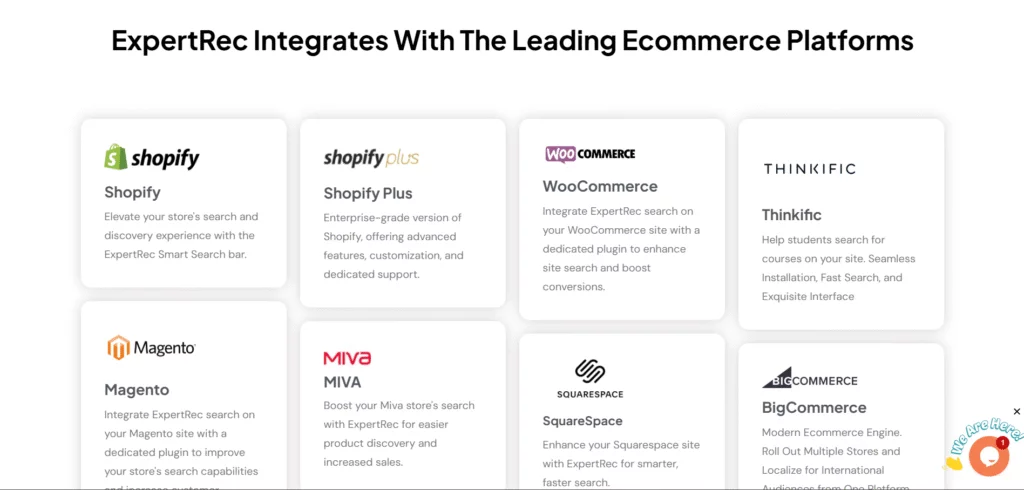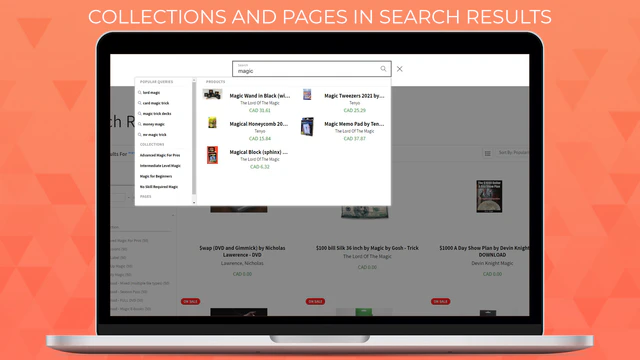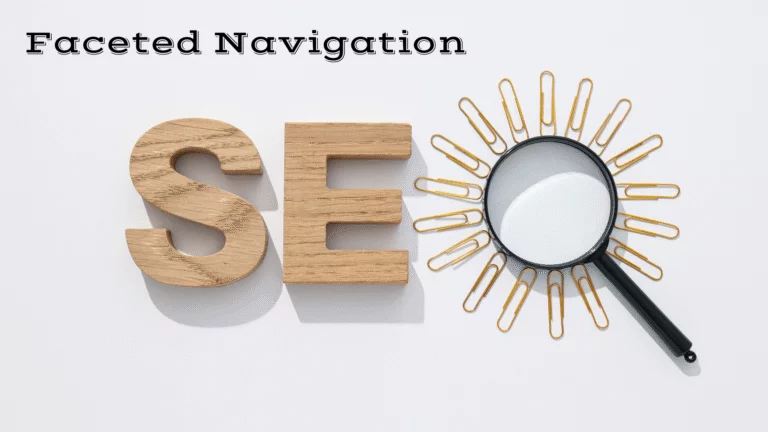If you’ve ever browsed an online store and filtered products by brand, price, color, or size—you’ve used faceted navigation. It’s a powerful way to enhance user experience, helping shoppers quickly narrow down options and find what they need. On large eCommerce or content-rich websites, it’s not just helpful—it’s essential.
However, what improves usability for humans can create serious challenges for search engines. Poorly configured faceted navigation can lead to indexing issues, crawl waste, and diluted rankings.
That’s why faceted navigation is a critical consideration for any large eCommerce or content-heavy site looking to rank efficiently. In this guide, we’ll break down the risks, best practices, and actionable strategies to ensure your navigation structure works with search engines—not against them.
What Is Faceted Navigation?
Faceted navigation is a user interface system that allows visitors to filter and sort content based on multiple attributes such as brand, price, size, color, or ratings. It’s commonly used on eCommerce websites to help users narrow down product listings quickly and intuitively.
Unlike traditional navigation, which follows a fixed hierarchy (like Home > Category > Subcategory), faceted navigation is dynamic—generating multiple combinations of filters that reflect user preferences in real time.

Example:
eCommerce Filters (Product Listing Pages)
Faceted navigation is commonly used on online stores where users can filter products by attributes like:
- Brand
- Price range
- Size
- Color
Blog or Content Category Sorters
On content-rich websites and blogs, faceted navigation allows users to refine articles by:
- Topic or category
- Author
- Date or publication period
- Content type (e.g., tutorials, news, guides)
Why Faceted Navigation Can Harm SEO
Faceted navigation is great for users—but if left unchecked, it can quietly hurt your search performance. Here’s how:
- Crawl bloat: Search engines waste resources crawling thousands of filter combinations. For example,
/shoes?color=red&size=10&price=under100vs./shoes?size=10&color=red&price=under100may lead to duplicate pages with identical content. Crawl budget refers to the number of pages Googlebot is willing to crawl on your site during a given timeframe. If it gets consumed by endless filter variations, important category or product pages may remain undiscovered or unindexed - Duplicate content: Different URLs often show the same content, leading to confusion and lower rankings.
- Thin pages: Many filtered pages have little to no unique content, making them SEO dead weight.
- Diluted link equity: When link authority spreads across too many low-value URLs, your core pages suffer.
The good news? These problems are fixable—especially with tools like ExpertRec, which offers built-in controls to manage URL indexing, optimize crawl behavior, and ensure your faceted navigation supports both user experience and SEO performance.
Faceted Navigation SEO Best Practices
To prevent SEO damage while preserving great UX, follow these key practices:
1. Use Canonical Tags
Point faceted URLs back to the original category or landing page to consolidate authority and avoid duplication.
2. Control Indexing
Use noindex meta tags or robots.txt rules to prevent search engines from crawling and indexing low-value filter combinations.
3. Limit Crawl Paths
Avoid linking to every filter combination from crawlable pages. This keeps search bots focused on high-value content. Additionally, ensure internal links point primarily to canonical category pages rather than filter-heavy URLs. This strengthens authority flow to your core pages.
4. Use AJAX-Based Filtering
AJAX filters load content dynamically without creating new URLs—ideal for SEO when you don’t need filtered pages indexed.
5. Leverage URL Parameter Handling
Configure parameter rules in Google Search Console to help Googlebot understand how to treat filtered URLs.Also, keep your XML sitemaps clean by only including canonical URLs, not every filter combination. This helps search engines prioritize the right pages.
ExpertRec gives you built-in tools to manage canonical tags, noindex rules, and crawl logic—without manual intervention. It helps you balance filter flexibility with search engine discipline.
ExpertRec’s AI-powered search is built to handle the complexity of large catalogs, layered filters, and dynamic user behavior—while keeping your site lean in the eyes of search engines.
Common Mistakes in Faceted Navigation SEO
- Blocking all filter URLs with
robots.txt(hurts discovery of useful variations). - Letting every filter combination index (causes crawl bloat & duplication).
- Forgetting canonical tags (splits ranking signals).
- Adding all filter URLs to XML sitemaps (confuses search engines).
Tools to Audit and Fix Faceted Navigation Issues
ExpertRec – Built-in crawl control and real-time SEO tools designed specifically for faceted navigation issues
Here’s how ExpertRec helps you win both sides:
- SEO-friendly filtering: ExpertRec avoids crawl bloat by managing URLs, canonical tags, and indexation rules automatically.
- No-code integration: Works with Shopify, WooCommerce, Magento, BigCommerce, and custom stacks—fast setup, no dev bottlenecks.
- Search that converts: Fast, intelligent results that adapt to what your shoppers want—boosting engagement, time-on-site, and conversions.
- Hands-on support: From onboarding to performance optimization, the ExpertRec team helps you implement best practices tailored to your stack and scale.
If you’re ready to stop bleeding traffic from bad filter behavior—or just want your product discovery to actually feel smart—ExpertRec is built for you.
How to Integrate Faceted Navigation SEO with Shopify, WooCommerce, and Magento Using ExpertRec
Implementing faceted navigation that’s both user-friendly and SEO-compliant doesn’t have to be complicated. With ExpertRec, integration across popular platforms like Shopify, WooCommerce, and Magento is seamless, fast, and doesn’t require deep developer involvement.

ExpertRec offers a plug-and-play search app for all eCommerce stores. Once installed, it automatically syncs your product catalog and enables smart faceted filters with:
- Clean, crawl-friendly URLs
- Canonical tags and noindex handling
- Real-time updates as inventory or attributes change
You can customize filter behavior directly from the ExpertRec dashboard—no coding required.

Conclusion: Fix Your Filters, Protect Your Rankings
Faceted navigation is a must-have for usability—but a potential SEO trap if not handled properly. For further insights, check Ahrefs’ comprehensive guide and Google’s official guidelines on managing faceted navigation. From crawl bloat to duplicate content, the risks are real, especially for growing eCommerce sites.
The good news? With the right strategy and tools, you don’t have to choose between SEO and user experience.
ExpertRec bridges that gap beautifully. With smart faceted filtering, crawl-safe architecture, and seamless integration across platforms like Shopify, WooCommerce, and Magento, it gives you everything you need to turn your search experience into a conversion engine—without hurting your rankings.
Ready to take control of your faceted navigation?
Try ExpertRec or book a demo and make your search work harder (and smarter) for your store.
FAQs: Faceted Navigation and SEO
Faceted navigation is a filtering system that allows users to refine product or content listings by attributes like size, price, brand, or color. In SEO, it refers to how these filters impact search engine indexing and crawling. Improperly configured faceted navigation can lead to crawl issues, duplicate content, and reduced search visibility.
It can, if not managed properly. When every filter combination generates a unique URL, it may lead to duplicate content and indexing issues. SEO-friendly implementation is key.
An example would be an online shoe store where users filter products by brand (Nike), size (10), color (black), and price (under $100). Each selection refines the product results dynamically—this is faceted search in action
Use canonical tags, restrict indexing of unnecessary parameters, and configure Google Search Console URL parameters. Better yet, use a search solution like ExpertRec which manages these aspects automatically and keeps your filtered URLs SEO-safe.
Robots.txt prevents crawling but the URLs may still appear in search results without content. Noindex removes them from the index entirely. In most cases, noindex is safer for SEO-critical sites.
Yes, when configured properly, some filtered pages (like “red running shoes size 10”) can capture valuable long-tail search traffic. The key is to control which combinations are indexed and which are not.




